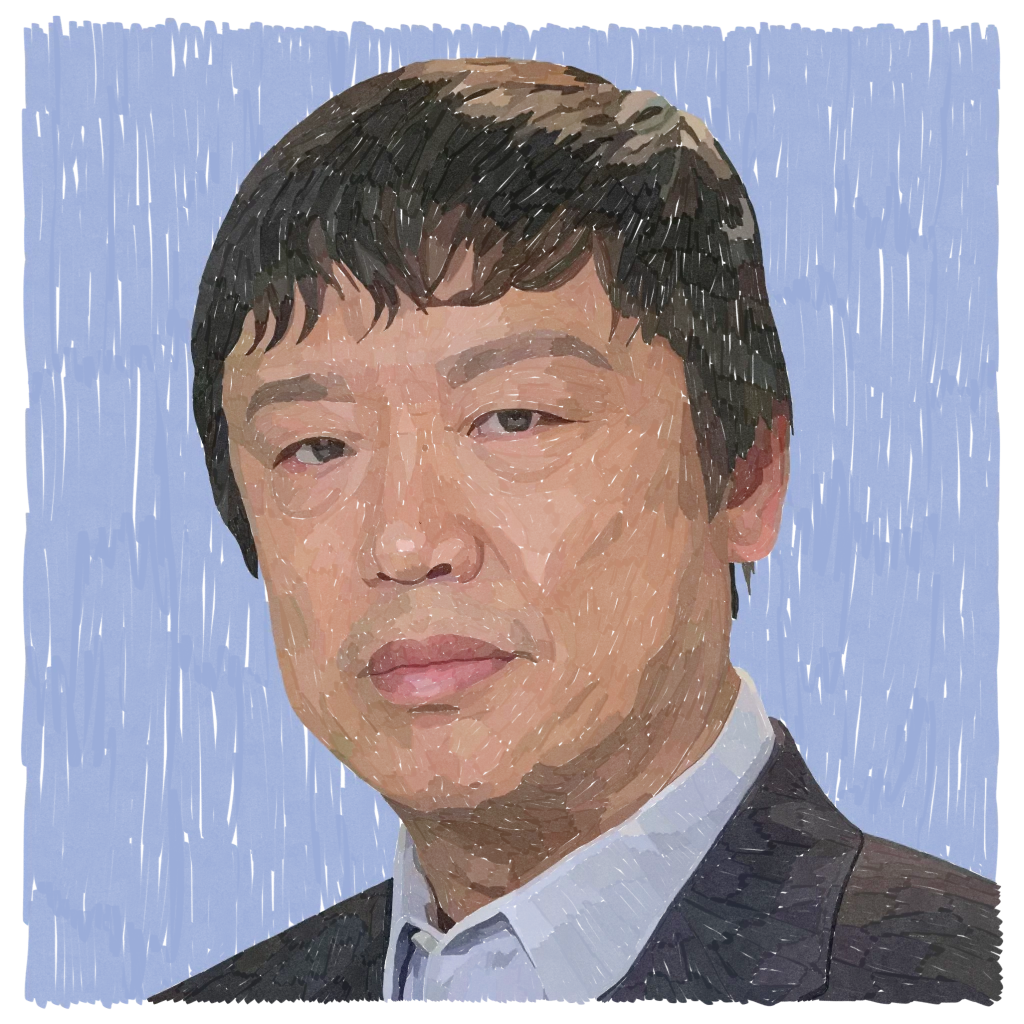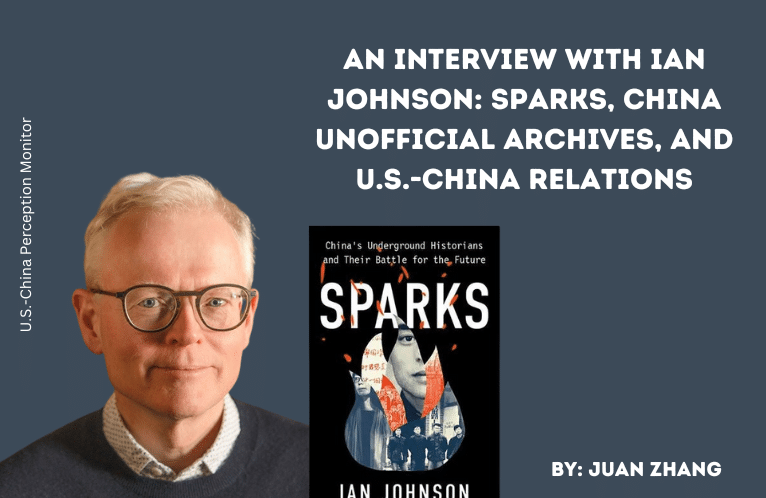When Will China Use Force to Reunite with Taiwan? Hu Xijin Explains His Position
Brantly Womack: Reflections on a Recent Trip to Beijing
- Analysis
- Brantly Womack
- 20/04/2023
- 0
Brantly Womack retired as the Miller Center’s C. K. Yen Chair and professor of foreign affairs at the University of Virginia. He received his BA degree in politics and philosophy from the University of Dallas, and after a Fulbright in philosophy at the University of Munich, earned his PhD in political science from University of Chicago. He is the author of China Among Unequals: Asymmetric International Relationships in Asia (World Scientific Press 2010) and China and Vietnam: The Politics of Asymmetry (Cambridge 2006), as well as more than 100 articles and book chapters. He edited China’s Rise in Historical Perspective (Rowman and Littlefield 2010), the product of a lecture series at the Miller Center, and Contemporary Chinese Politics in Historical Perspective (Cambridge 1991). In 2011, Womack received the China Friendship Award for his work with Chinese universities. He holds honorary positions at Jilin University, East China Normal University, and Zhongshan (Sun Yat-Sen) University.
This is a brief reflection on my experience in Beijing from February 17 to April 20, 2023, followed by two days in Taipei on my way home. I was hired by Schwarzman College as the Boeing Visiting Faculty Chair in International Relations to teach a seminar and to give additional lectures, and I used the opportunity to get in touch with many of my friends in Beijing and beyond. Schwarzman College is an autonomous unit of Tsinghua University (one of China’s top two universities), with an international student body engaged in a one-year master’s program in global affairs. My seminar was titled “Recentering Pacific Asia: Regional China and World Order.” Not coincidentally, this is also the title of my forthcoming book (Cambridge University Press).
Beyond the Schwarzman program, I gave talks in Tsinghua’s international relations and political science departments, as well as in the international relations departments of Beijing Foreign Studies University and China University of Politics and Law. A highlight of the visit was participating in the 5th International Forum on Security and Strategy, sponsored by the Center for International Security and Strategy (CISS) of Tsinghua University. Later, in Taiwan, I participated in a workshop on “US-China Rivalry and International Relations of the Asia Pacific” at the Institute of Political Science (IPSAS) of Academia Sinica.
This was my first visit to Asia since the start of the pandemic three years ago, and I was fortunate to arrive in China in the first few weeks of its post-COVID era. My students had arrived at Schwarzman in September. Until December, they had suffered the isolation, anxieties, and inconveniences of the late zero-COVID policies, followed by the sudden whirlwind of “total COVID,” when restrictions were suddenly removed and COVID spread rapidly. With the rest of China, all my students and friends had gotten sick within weeks but had recovered by February. For me, as a post-zero-COVID arrival, it was quite an experience hearing the stories of these policy-and-plague-hardened veterans. One friend came close to death from infection, and in my time in Beijing, I only knew two people who had not caught the virus. By the time of my arrival, everyone was renewing the joy of face-to-face encounters and, gradually, of maskless face-to-face contact. The Beijing subways stopped requiring masks during my final week, but in the crowds, everyone continued to wear them. The Tsinghua Forum and the IPSAS workshop were each the first in-person events in three years for their institutions.
The primary subject of discussion in my activities was world politics, but my two deepest impressions were of the importance of personal and international connectivity, and of the existential trauma of COVID in 2022.
Connectivity is Key
I was in the first cohort of international academics returning to China, and the reaction of us all was an overwhelming exhilaration from being back in touch. Perhaps it was particularly strong for Americans (and Chinese), since our two countries are so out of touch with respect to mutual understanding; and yet, the relationship is central to world politics. Perhaps more than ever, I feel that reestablishing relationships in order to flesh out differences in perspective and grasp internal developments in China is important. My discussions in Beijing rarely solved problems or changed minds, but the interaction allowed a better understanding of the complexities facing both sides. The isolation of the COVID era, amplified by the mutual suspicions of Xi Jinping’s China and Trump’s and Biden’s America, has removed the human texture from the relationship. Tsai’s Taiwan has moved in that direction as well. One can only hope that the post-COVID era will bring a return to more normal people-to-people relationships at every level, but the inertial habits of three years of isolation will be hard to overcome.
Public and Private Opinion
My second deepest impression was that the foundations of political solidarity have shifted in China. The fundamental characteristic of the Chinese party-state is the enmeshment of the Party, state, and society. Not only is there no separation of powers in China, there is no separation of Party from government or separation of public from private. Nor is there federalism. Everything below the Center, including provinces with populations of over a hundred million, is now considered “local.” In the United States, with our expectations of limited government, divided responsibilities, and states’ rights, this looks like totalitarianism—all-powerful from the top, and only serving the interests of the top. But the enmeshment originated in a rural revolution built from the bottom up, and the collective experience of the “power of the people,” mobilized by the Party, has been the key distinguishing feature of Chinese (and also Vietnamese) communism. However, the people do not have a voice in today’s party-state system. The Party, which has 96 million members and throughout society and government, is supposed to act as a kind of political class, reflecting local concerns and interests—that is, after all, the “democratic” side of “democratic centralism”. But today, centralism is key and challenge to the Center is not allowed, inside or outside the Party.
While the relationship of the Party to the people began to deteriorate from the establishment of the party-state in 1949. Xi Jinping’s personalistic demands for loyalty and submission by Party members exceed even Mao Zedong’s. The egregious mistakes of his extension of zero-COVID in 2022, followed by ‘total COVID’, have given everyone, including Party members, an acute and existential experience of the gap between Xi’s control and popular welfare. It was clear from the Shanghai lockdown from March to May that zero-COVID, no matter how harshly enforced, could not be successful against the Omicron variant. Nevertheless, because the success of zero COVID had become one of Xi’s signature policies, the policy was continued and sharpened until the Party Congress approved Xi’s third term in October. Once the Congress was over, policies began to be relaxed, starting a snowball of local demonstrations against the restrictions. Then, the restrictions were lifted, though no preparations had been made for the ensuing tidal wave of infections. Everyone could see that this was Xi’s fault, and each had suffered personally as a result.
Public opinion, including on social media, is monitored, and therefore only occasional and oblique critical comments surface. What I heard on my visit—and could not have heard at a distance—was private opinion. There was ubiquitous disgust at the 2022 COVID policy, blame is placed on Xi, and there are concerns about China’s future. Before COVID, many of my friends (most of whom were academics and Party members) were softly alienated from the leadership. After all, many had sympathized with the 1989 demonstrations. However, some had liked Xi and his anti-corruption campaigns. But this time the gulf between private opinion and public opinion was complete. While the Party remains a collection of people in society and one with memories of some voice and popular responsiveness, Xi has neutered the Party as a political class by squeezing “democracy” out of “democratic centralism.” Xi has also choked off the autonomy and self-respect of academics. Now professors are required to indicate in their syllabi how they include Xi Jinping Thought in their courses. Schwarzman College is an envied exception. There never have been oppositional institutions in China, and the completeness of party-state control precludes revolutions. But people know what they have experienced. What comes next—and when—is impossible to guess. No one wants chaos. But the future is unlikely to be an indefinite continuation of more of the same.
The International Stage
I also discussed world politics with my colleagues and friends in China. The current state of international affairs dominated both public and private discussion, with the hottest topic being American China policy. People in China watched the Congressional TikTok hearings, and even the non-Chinese were shocked at the arrogance and the extreme “zero China” attitude of the inquisition. It seemed that U.S. policy was moving from passive containment to active decoupling, and from ambiguity on Taiwan to pushing toward Taiwan independence. Similar to those in the U.S., people in China tended to focus on the actions of “the other side” and to assume that their own side was simply reacting to provocations.
Notably, no one I spoke with favored supporting Putin in his continuing war in Ukraine. They saw it as creating an atmosphere (with Biden’s help) of a new Cold War and causing serious problems for China’s relations with Europe. Some claimed that Putin had tricked Xi into standing by and withholding criticism. People were especially concerned about Putin’s possible use of tactical nuclear weapons. The war was against China’s interest (China was Ukraine’s largest trading partner), and people approved of Xi’s moves toward mediation.
People were also very concerned that the U.S. was pushing China into military action on Taiwan. The general tone was not that conflict was inevitable, but that it was much more likely than it had been. On Taiwan, there was general concern that Tsai’s government was risking a devastating war and pursuing policies of decoupling cross-Strait relationships. Cross-Strait academic ties, which had been very important, were being cut at both ends. Taiwan’s restrictions on academic interaction were being tightened as the general anti-COVID restrictions were relaxed.
During my teaching, I argued that China’s regional relationships are the foundation of its global presence, an idea that was well-received. There is more attention to the need to improve relations in Pacific Asia and with non-Western nations more generally. Its primary approach has been a proliferation of partnerships with other countries rather than forming alliances. China does not see itself as a rising contender to American hegemony. Rather, the world situation is already beyond domination by one or two global powers. China’s basic foreign policy concentration is to reduce risks to itself, risks which have diversified as China grew to become the world’s largest manufacturing economy.









